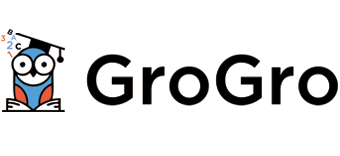You’ve probably heard us use the phrase “30 million words” a lot. It’s used throughout our website, in our branding and in our packs. But where did this number actually come from and why is it so significant?
When we first started our journey to create GroGro, we came across this phrase in our research and quite simply we were stunned by it. Research has shown that children who were spoken and read to regularly, would hear 30 million more words in the first 3 years of their life. This is a huge number which results in huge benefits to the child. It’s hard to imagine saying 28,000 more words a day to your child, and that’s partly why we found this number to be so powerful. It can however be achieved, and the results are mind-boggling.
“The more parents talk with their child from birth to age three, the more likely their child will excel academically later in life.“
Todd Risley PhD, co-author of the Hart & Risley Study
The 30 million word gap as it’s now known as, was originally a study back in 1995 called the Hart & Risley Study. The study was conducted over a 2 ½ year period and involved 42 families with children from 7 to 36 months. The team of researchers would record one full hour of every word spoken at home between the parents and the child, as well as measuring the child’s language skills and cognitive ability. A deep analysis of this data and transcripts was undertaken in the following 6 years, as well as a follow-up study of the same children at the ages of 9 and 10.
The study discovered that children who had parents who would actively talk to them heard 45 million words during this time period and children who had parents who didn’t involve their child in conversation heard just 13 million words. This is where the 30 million word gap was formed!
“The more parents talked to their children, the faster the children’s vocabularies were growing and the higher the children’s IQ test scores at age three and later.”
However, it’s not just the volume of words your child hears that helps, it is the quality of words. The study showed that necessary talk, known as Business Talk, that usually involved an order such as “finish your food” and “go to sleep” didn’t do much to stimulate a child’s brain. It is the Extra Talk that makes the difference and can be seen as more conversational. This type of talking tends to provide a richer vocabulary and language experience for the child and allows them to engage in language at a deeper level. For example, it may simply be you giving your child a running commentary about what you are doing and why, or asking your child questions (of course you may not actually get an answer!) such as “it’s time to get your dinner. What do you fancy today? How about some tasty pasta? You like pasta don’t you?”. It is this type of conversation and vocabulary that helps engage your child and helps improve on language development.
This is where reading comes in! Reading is a fantastic way of increasing your child’s word count and developing their Extra Talk language skills. Books allow you to engage in stories, talk about real life situations and emotions, as well as allowing you and your child to discuss the book/page. It is this that will help your child grow and give them that head start.
For more reading on this topic, there is a great book called Thirty Million Words: Building a Child’s Brain by Dana Suskind.

